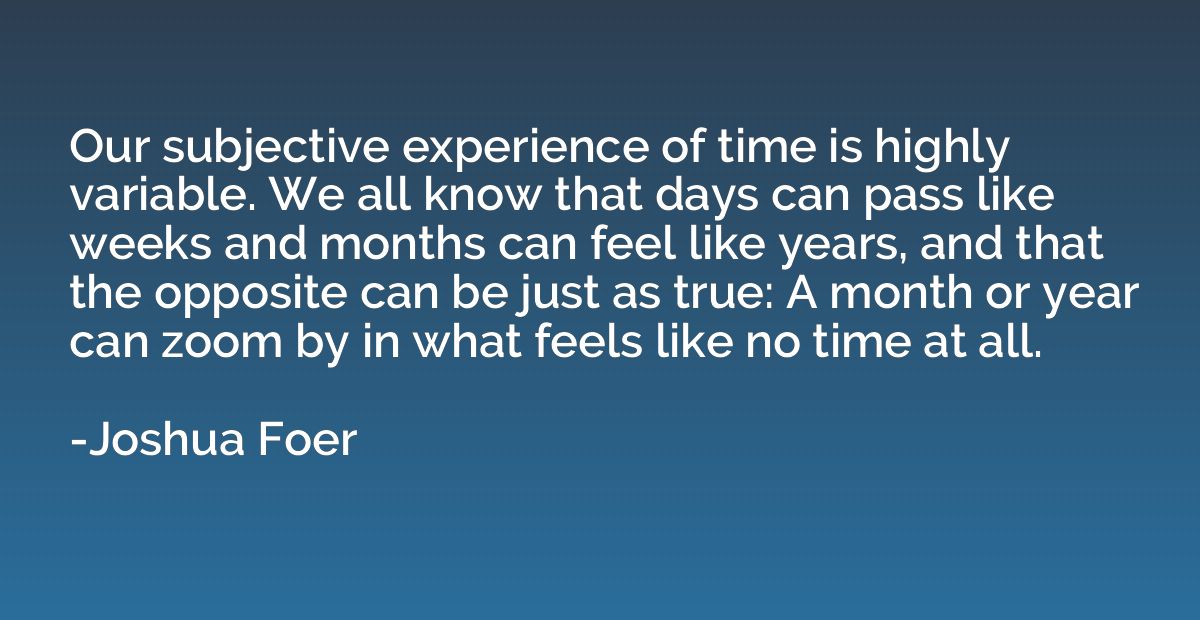Quote by Joshua Foer
Our subjective experience of time is highly variable. We all know that days can pass like weeks and months can feel like years, and that the opposite can be just as true: A month or year can zoom by in what feels like no time at all.

Summary
This quote highlights the subjective nature of our experience of time. It points out that our perception of time can fluctuate greatly, with certain periods seeming to drag on for longer while others pass by swiftly. It acknowledges that our perception of time is influenced by various factors such as our engagement level, emotions, and personal circumstances. This subjective experience affirms that time, at least in our perception, is not a constant and can be fluid.
Topics
Experience
By Joshua Foer














